Fertile Ground
Growing Forward
“Radical simply means grasping things at the root. I am no longer accepting things I cannot change. I am changing the things I cannot accept.”
— Angela Davis
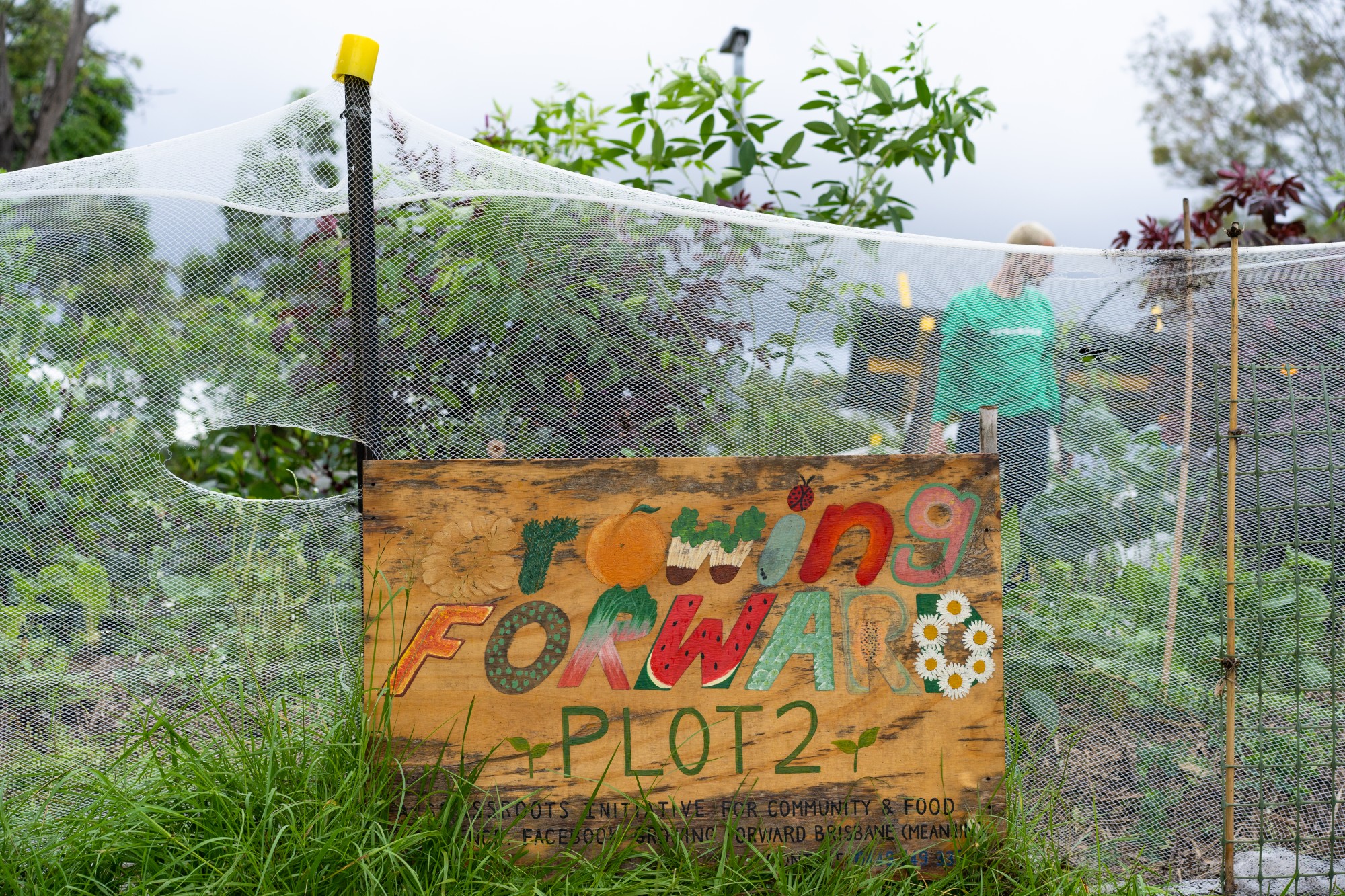
The Growing Forward gardens have been created on the stolen lands of the Yuggera and Turrbal people, whose sovereignty was never ceded. We acknowledge the continued connection to Country of Aboriginal people and their deep wisdom in caring for, growing on and stewarding this land.
Kurilpa Garden, on Yuggera land in Meanjin, was the first of four gardens to offer an abundance of free organic produce to feed the community.
Two years ago it was a barren and desolate patch of dirt, stirred up by the occasional car that would park on the otherwise abandoned block. Then the pandemic arrived and an overwhelming sense of trepidation and doom washed over Meanjin. Amidst the empty supermarkets, income loss, housing insecurity and rumbling stomachs, Growing Forward Brisbane/Meanjin was born—a grassroots guerilla gardening collective that grows food on disused land. Every week, those who care for the garden come together to harvest the produce and deliver it freely to people in our community who need it.
Now that patch of dirt hums with the sounds of bees, insects and the laughter of a close-knit family.
Kurilpa means place of the kuril: the water rats native to the area. Boundary Street, where the garden is situated, was once a path leading from the river to Musgrave park, where Yuggera people herded kurils and killed them for food. The so-called “state-owned land” where the garden resides has in fact belonged to the Yuggera People for thousands and thousands of years.
Recognising “state ownership” as illegitimate—born from the theft and dispossession of Aboriginal land—we claimed the garden for practical community use with the consent of Traditional Owners. Collectively, we have begun to imagine different organising systems and ways of structuring our communities around our basic needs. As we grow food together we share experiences and knowledge, and are learning to confront and challenge capitalist norms and values.
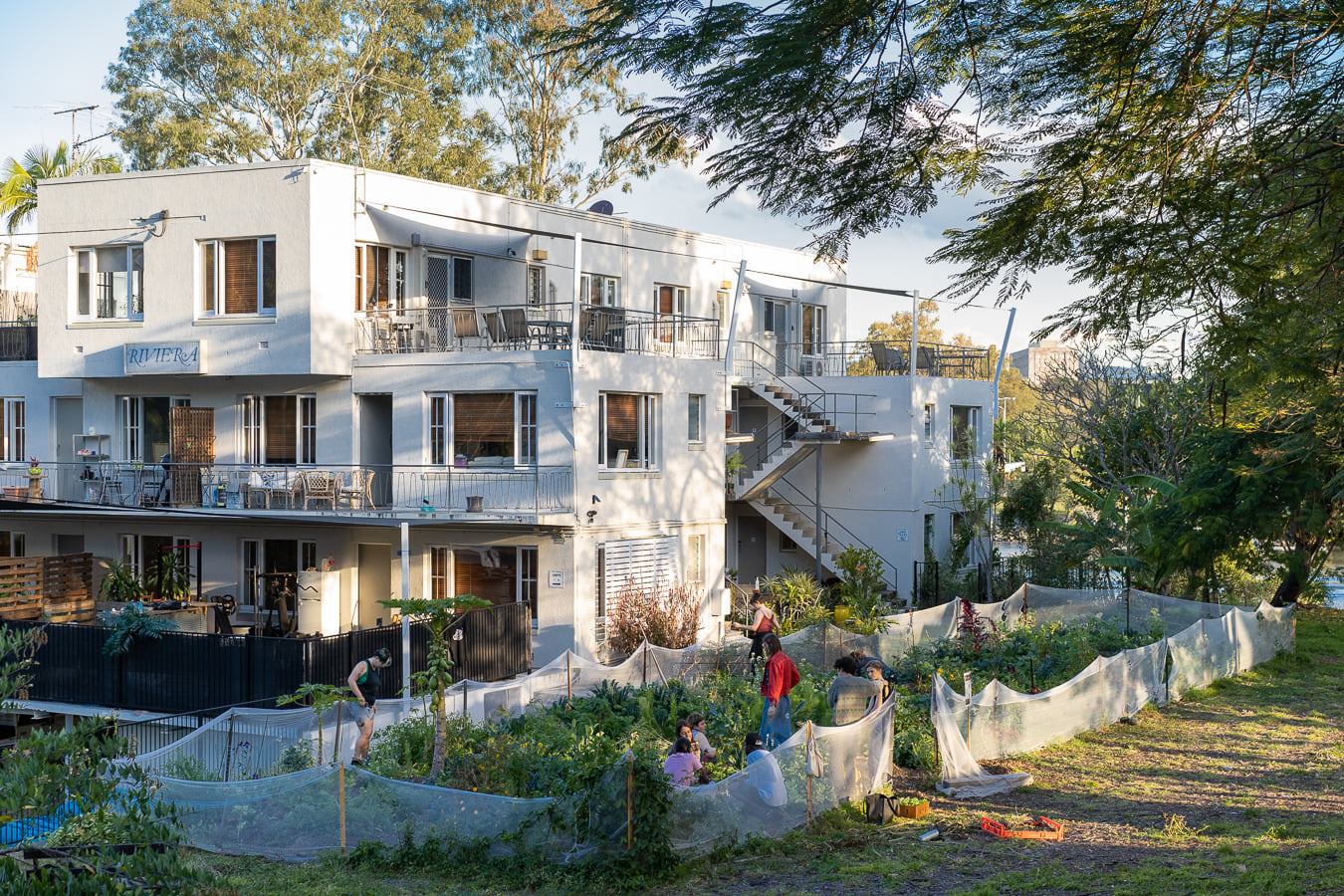
The garden is where we have begun untethering ourselves from profit-driven and extractive bureaucratic systems. In doing so, we are able to move past the dominant culture of individualism and instead practice a culture of care and abundance. Growing Forward is a means of regaining agency over our collective health, including that of the environment, and building a more resilient community based on mutual aid. Up until recently, our initiative has gone unchallenged.
But now Kurilpa Garden is under threat.
Mid 2021, a developer of luxury apartments submitted a development application for the property next door, with plans for the sewage line to run through our garden.
Their proposal included the demolition of a perfectly functional building, one with flats that are affordable to working class people, and the construction of a luxury six-storey building (in a three–four storey zoning area.) The marketing material from the developer is green-washed with the usual eco-capitalist jargon like “carbon neutral” and “eco-friendly.”
Upon hearing that the application had been lodged and was open for submissions we picked up our pitchforks, shovels and placards and marched down Boundary Street in protest of the proposal that would destroy the garden.

However, the night our rally ended, just one day before the public submissions period closed, hundreds of submissions in support of the proposal began to flood in.
In response to the unusually high amount of supportive submissions, we submitted a Right to Information (RTI) request to the Brisbane City Council regarding the submissions. Jonathan Sri, Councillor for The Gabba, made similar enquiries.
The report disclosed the following: over 329 of the total 612 submissions came from just four unique IP addresses. This means over a period of two days, from immediately after our rally until the end of the submission period, hundreds of submissions were lodged from just four devices in support of the development. One IP address alone made over 150 submissions in support.
Although many were purported to be made by “neighbours” and “local community members,” they contained technical language: “biophilic design principles,” “adequately addressing a scale design,” “topographic depression” and “pleasing biophilic visual cues.”
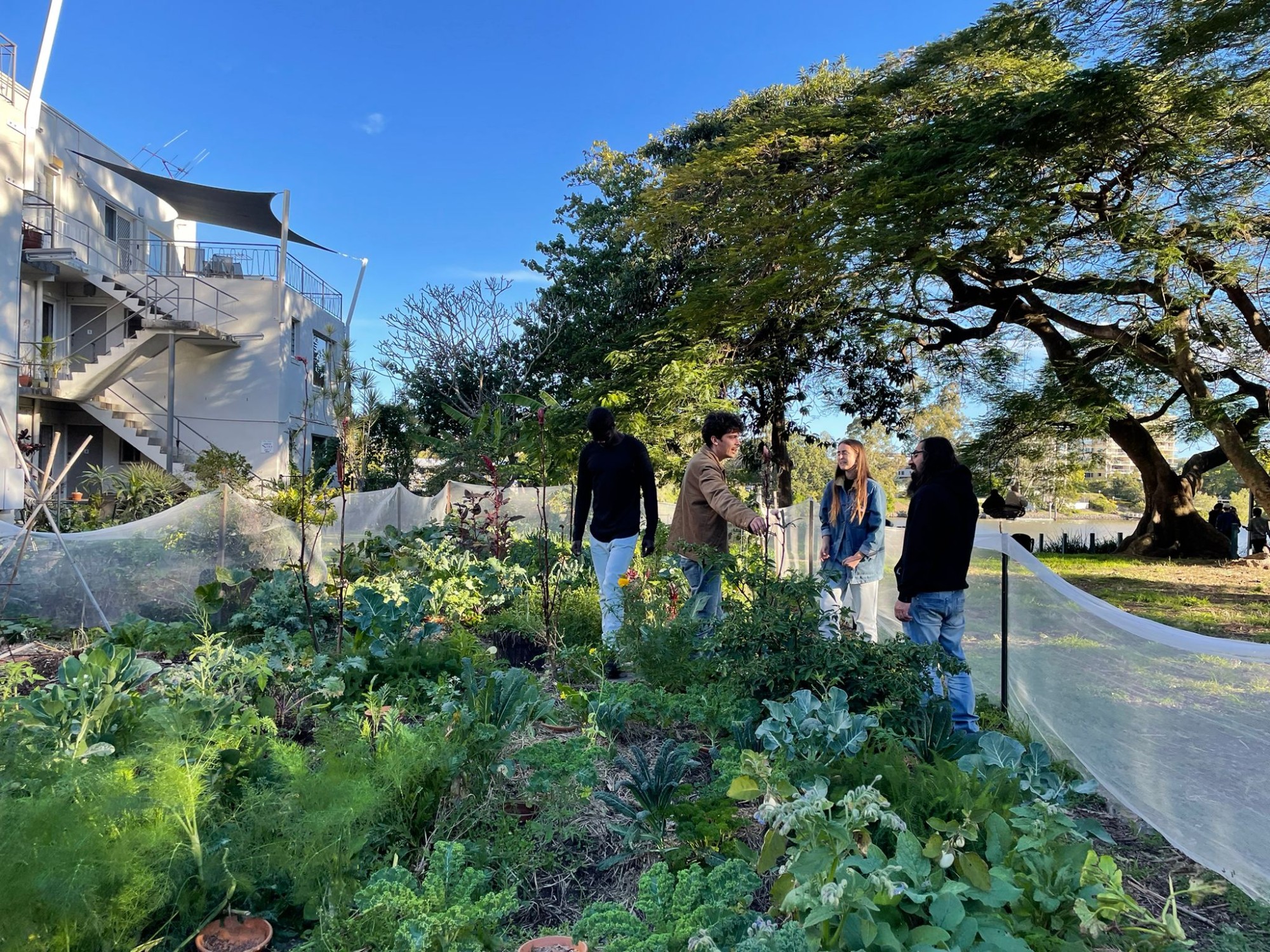
When we were made aware of this suspicious activity, we submitted a request to the CEO of Brisbane City Council (BCC), seeking an investigation into the communications between the developer and community members. We followed up with a RTI request to the BCC about their investigation.
BCC responded to our RTI application with a completely redacted ten-page document, and concluded that they were not legally obliged to give us access to further information. They stated that even though 329 submissions were made from just four unique IP addresses, they “formed the view that there is currently no basis for council to form a reasonable suspicion of any fraudulent activity.”
After the council refused to reveal information as to who made the submissions, we appealed their decision and requested an external review. After months of waiting, we received in response to this review a document that had absolutely no relevance to the investigation at hand.
Our attempts to engage with the BCC’s official processes—including writing submissions, appealing submissions and requesting reviews of internal decisions—have gotten us nowhere. The power developers have in determining application outcomes far outweighs that of the community. What we have discovered in this process is that “community engagement” is a fallacy, rarely done with community in mind.
Mid this year, the development was approved by council.
As a grass-roots collective, we cannot afford the thousands of dollars it would cost to appeal this decision. As if designed around the budgets of developers, the exorbitant fees to appeal new developments further reinforces just how rigged these systems and processes are against everyday citizens.
It seems that the likelihood of us winning this fight is slim.
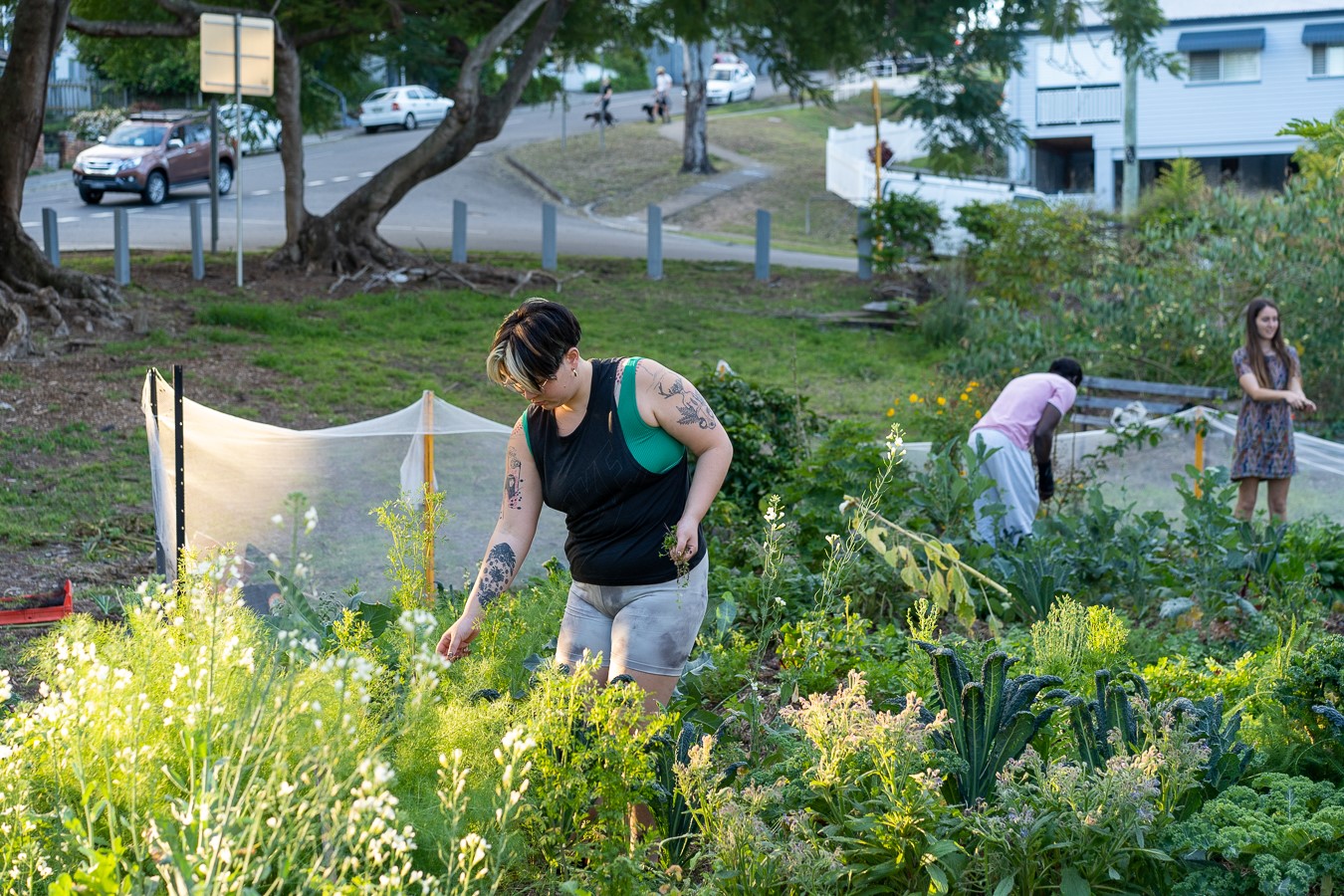
When developers and councils choose to ignore all forms of dissent and bulldoze low-income housing and community gardens, it is clear which class interests they uphold. It also comes as no surprise that under western capitalist systems, our ability to enact meaningful changes within our local areas has been severely eroded. There are simply no fair processes by which we can dissent to these systems that cause gentrification, the decimation of the land, and the destruction of culture and community. As long as a few people get their paycheck, the catastrophic costs to the community are ignored.
This is why grassroots collectives are necessary—they challenge the status quo. It is also why a patch of dirt has become fertile ground for protest.
Kurilpa Garden has become a promise that another way of living is possible. The community around it has had an opportunity to see another world each time they go for a walk, each time they water the crops, or harvest food for other people.
Imagine if every vacant plot of land was a productive garden for the community, run by the community. Imagine if every time a law upheld injustice we had the courage to speak up and act against it and in solidarity with one another. Imagine if we started to change repressive systems by targeting their roots, instead of their symptoms.
In a city driven by the accumulation of wealth and value—where the last fragments of public space are being bought up or leased to big businesses—it is rare to have a grassroots community shaping public space.
These days it seems harder and harder to hold onto the things we love. Loving this garden has been just about the only easy part of the past few years. Kurilpa Garden has gotten many of us out of bed on some of the worst days of our lives. So we will fight for this garden, for our community, for an alternative to capitalism, as though our lives depend on it—because they do.
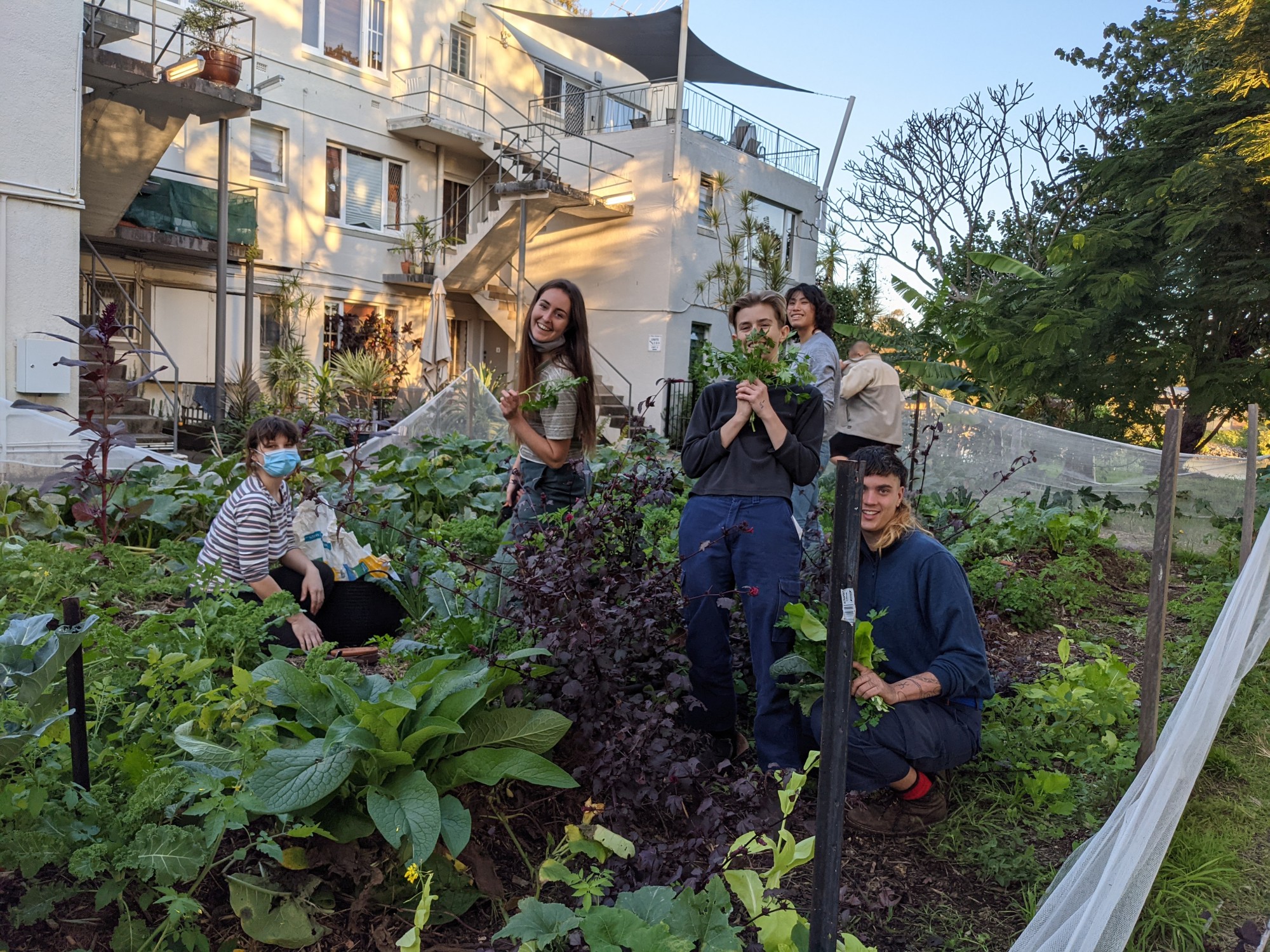
Growing Forward is a small collective of people responding to climate-induced disasters and health pandemics by growing sustainable food and giving it away for free to people in need. This is a mutual aid project that does not seek permission from the state to build the gardens, but rather asks Traditional Owners of the land we work on. For every garden, a small group of locals are responsible for caring for the garden and distributing the harvest within the community. If you would like to find out more, join our community, or get involved, you can find us here.